Twenty-four hours after sacking 50 staff, Gelb tries to play down the bloodshed in the passive parish sheet, here.
Gelb claims ‘only’ 21 of 243 admin staff are affected. Our informants insist the number is 50.
None of the victims has spoken yet, fearing loss of their severance and pensions.
Look at it any way you like, this is no way to start an opera season. Or to inspire confidence in the Met.

Among the 50 staff who were fired yesterday at the Metropolitan Opera was, we hear, Gary Feinstein, Director Subscriptions & Special Services.
That’s a big cheese.
Gary, a Met lifer, pays the price for Gelb’s dwindling box office. He has worked at the Met since September 1977 and knows everyone – especially the subscribers. This will not play well in Poughkeepsie.

That’s him on the right. More honourable discharges here.
Zeneba Bowers, a violinist in the Nashville Symphony and the Alias chamber ensemble, posted this reflection today on how many US musicians cope with ill-health: they ignore it because they can’t afford to do anything else. Hers is a striking case history that we feel sure will resonate with many others. What can be done about it?
Read Zeneba:
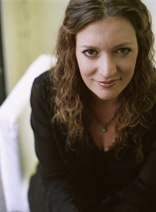
Today I finally went to the doctor after having a cold for 11 days. Turns out I have bronchitis. (I’m fine, I’m not posting this for sympathy.)
For many years I lived with no health insurance. A small illness like this one would have had serious implications for me. I would have to miss gigs (with no paid sick days, so lots of lost money), and on top of that, pay for a doctor’s visit and medicine I could not afford.
The shame of having to go in to a doctor, without insurance, and ask line by line how much something would cost (with no consideration for my health, but only the dollar amount), was enough to keep me away from the doctor, in nearly every circumstance. I was not lazy or sponging off the government, I was a full-time student with 2 part time jobs. Trying to turn myself into a “maker”, as some would say today.
My grandfather was a doctor, and when I was absolutely desperate, I would call him and he would write me a scrip for antibiotics, when I had a UTI or strep throat. He was writing those scrips from MN, when I was in NY — this was surely illegal, but he took pity on me, as he knew I had no other option.
I used to call my health insurance plan the “Old Yeller” plan; meaning, just shoot me in the face if it gets too bad.
I remember when I got my first orchestra job, I went down to the office to meet everyone and pick up paperwork. One of the things I picked up was an insurance card. I literally cried when I got it, and kissed it. I was so happy, just to think that I could get basic, general care. I didn’t have any major pre-existing condition. Just typical ailments like the flu, or a cold. But the specter of a huge medical bill (which could be brought on by any small accident) loomed over me every day. It was something I worried about constantly. I think I could have gotten a lot more done in my studies if I weren’t panicking about this, seriously.
Today at the doctor they asked if they could take an Xray, to check my lungs for pneumonia. I thought about asking about the cost, and then I thought “You know, I just want to get better. If that’s what it takes I’ll just spend the money”.
Well that was not something I could have thought before, because I would never have been able to afford it. And while I am grateful that I can afford it now, there is nothing about me that makes me better or different than my neighbors or friends who can’t afford it.
We can do so much better in this country, and we should. Every other developed country does. Let’s join them.

The Barber Inistitute at Birmingham University is presently putting on the first performances of Nicola Porpora’s Agrippina since its premiere in 1708.
You’d have thought that might have attracted a bit of attention. Nothing of the sort. Locals are seething that the opera has been ignored by national critics. One of them, PhD student Sara Clethero, has sent us her review.
Although we are not a review site, we make an exception for this opera – otherwise it might go unnoticed for the next 309 years.
A race against time
L’Agrippina: Porpora
review by Sara Clethero
I fought my way through the cycle race traffic on my way to the Barber Institute at Birmingham University to see Porpora’s Agrippina and I was so glad I did. The singing was superb, the orchestral playing joyfully precise, and the production an inspiration to see.
‘Popora’s cheerful unconcern with decorum’ in the words of Prof. Andrew Kirkman, the musical director, is given full rein, making for a refreshingly pantomimic acting style in some cases and a very direct delivery of the recitative text (translated into English) – necessary, since the performance lasted some four hours. The most undecorous performances were the duets between bass baritone Marc Labonnette, as the servant Planco, an extraordinary voice which could go anywhere (does he sing Wagner?) and Charlotte Beament singing his ambivalent female collaborator.
Kirkman calls this opera by Handel’s heavyweight rival ‘a wasp’s nest of intrigue and incest’. He conducted with finesse and precision, setting the singers and instrumentalists free to do their formidable best. A multimedia stage design created a magical setting for the piece in the iconic, but technically limited, Barber Concert Hall.
Work of this freshness and immediacy gives me hope that we might be finally moving into a new era of opera performance, where the audience members are joyful fellow-travellers with committed performers rather than respectfully mute witnesses of a specialised, and ultimately irrelevant, art form.

A black flag hung last night from the Rudolphinum in Prague, in memory of the great harpsichordist who died yesterday at the age of 90.

She leaves a great hole in our hearts.
Here’s a clip from the forthcoming film of her life.
The American conductor was rolled out yesterday as music director of the Brno Philharmonic, in a city famed for its Mies Van der Rohe glass room.
Bored by the flat Czech formalities, Dennis sat himself down at the piano and started playing music by Pavel Haas, a Jewish composer who was ripped out of Brno and put on a train to Terezin and Auschwitz, where he was murdered.
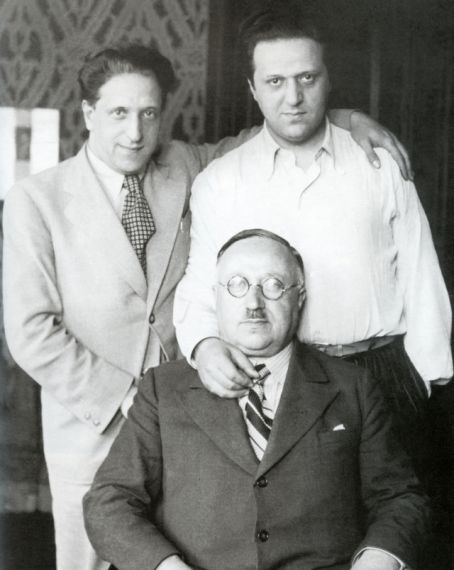
Haas is not remembered much back home. He is now.
Fast-forward to 11:45 on the video to see Dennis teach a lesson in lost history. It won’t be the last.
The diva, recovering from a back operation, has called off a tour of Latin America.
Here’s what she is telling disappointed fans in Peru:
To my friends, followers and all the music lovers of Lima, I deeply regret asking your kind understanding in my need to postpone my visit to your historic National Theater and its incredible city. arts in Lima and its devout musical audience.I expected with much anticipation and joy to arrive and sing for you.
Thank you for allowing me now the time, which is required, to recover completely from an uncomfortable problem in my back. Physical therapy works wonders and I hope I can offer my greetings to you, very soon.

The Australian government is conducting a Same-Sex Marriage postal survey.
Many individuals and organisations in the arts have joined a YES campaign.
Not the Sydney Symphony Orchestra, which has publicly announced its neutrality.
Here’s a board statement from the SSO, issued after an angry response to its silence by former chairman Leo Schofield. It’s a heavily lawyered masterpiece of lily-livered equivocation and it will please absolutely no-one:
The SSO is a highly-respected organisation spanning more than 85 years with members, concert-goers, very generous sponsors and donors, not to mention loyal and committed staff and musicians, all of whom come from wide and diverse backgrounds and opinions.
It has always been the case that the SSO has engendered organisational initiatives and performances that reflect an abiding commitment to inclusiveness, fairness and acceptance and that the company has at its core a commitment to everyone in our community – regardless of gender, orientation, cultural background or religious beliefs – of performing music to the highest calibre for which the orchestra is celebrated around the world.
There is no question that the SSO strongly supports the rights of all citizens to place on the record their views, by way of the private and confidential postal plebiscite and as such, the company does not feel it has the right to take a position and commit our stakeholders to one side or the other and has decided it should remain neutral. We urge all Australians to respect the democratic process of the majority decision, one way or the other, in a spirit of goodwill and cooperation towards each other in a peaceful resolution.
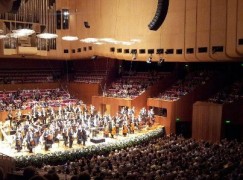
We hear that around fifty staff members of the Metropolitan Opera were fired yesterday, including some fairly senior administrators.
Some victims were told that Peter Gelb had to make $20 million worth of cuts after a fundraising failure last year.
No mention was made of the Met’s box office decline to well below 70 percent, or the continuing drift of a once-loyal audience to suburban Live from the Met screenings.
It is understood that most of the sacked staff are non-union. Many have not received a pay rise in eight years.
Gelb, by internal calculations, is working to a revised budget of $280 million.
Not a happy way to start the season.
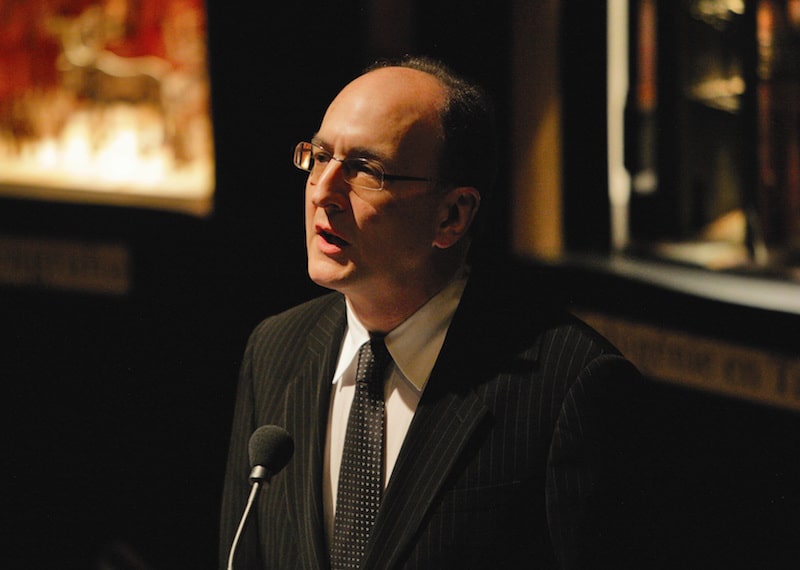
If you are one of the people sacked, do get in touch with your reaction – anonymously, if you like.
UPDATE: One sacked director is named.
2nd UPDATE: What will Gelb cut next?
The former music director of Tour Opera, Jean-Yves Ossonce, is being questioned by the police after three members of the chorus claimed that he subjected them to ‘oppressive, humiliating and demeaning treatment’ during the course of a union dispute in 2005-6.
Ossonce was music director in Tours from 1999 until last year.
He has declined to comment.
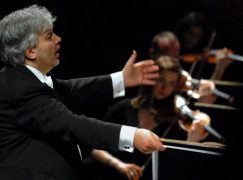
Under a law of January 17, 2002, moral harrassment, such as bullying at work, is both a civil and criminal offence in France.
The freelance baton Riccardo Frizza has been named music director of the Donizetti Festival in Bergamo.
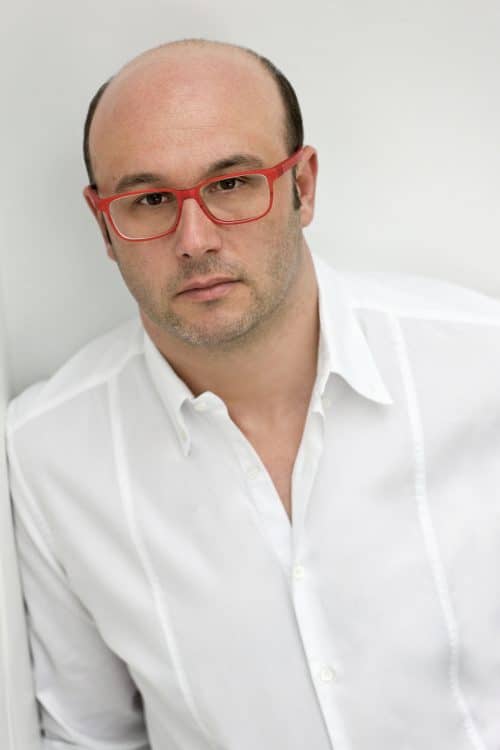
photo: J Henry Fair
The violinist and conductor Julien Chauvin has put out an appeal for the recovery of instruments that were stolen from him yesterday in Paris.
Julien, founder of Le Cercle de l’Harmonie and Concert de la Loge Olympique, issued the following message:
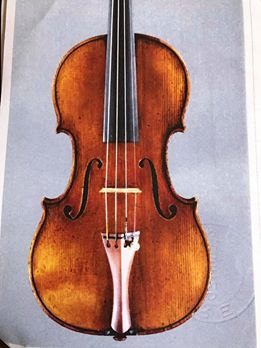
HELP!!!!!!!!!!!!!!!!!!!!!!
My violin was stolen this morning
Giuseppe Rocca 1839
And Marie’s viola
Yair Hod Fainas
Many bows including these
Please be aware and forward largely!!!













